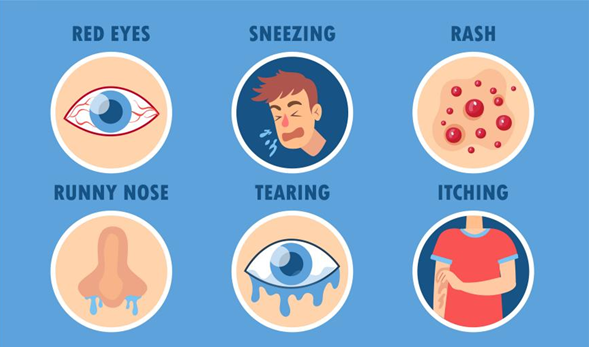March 2025
Total IgE TestingYour Key to Unlocking Allergy, Free Health
Are you constantly troubled by unexplained skin rashes, sneezing, or breathing difficulties? These could be signs of an allergic reaction. While total IgE testing helps identify heightened allergic activity, it’s the first step toward pinpointing the specific triggers through further diagnostic tests.

What is IgE?
Immunoglobulin E (IgE) is a Y-shaped antibody composed of two heavy (ε) and two light (κ or λ) chains, with variable regions that bind allergens and constant regions that interact with Fcε receptors on mast cells and basophils. This binding triggers the release of histamine, leukotrienes, and cytokines, causing symptoms like itching, swelling, sneezing, and bronchoconstriction. Elevated IgE is a hallmark of allergic diseases, including asthma, allergic rhinitis, atopic dermatitis, and food allergies, and is also implicated in parasitic infections and certain autoimmune conditions.

Why Choose tIgE Testing?
Assess Allergic Burden: Measures overall IgE levels to gauge hypersensitivity.
Quick Screening: Identifies potential allergies like asthma, rhinitis, or dermatitis.
First Step in Diagnosis: Determines if further allergen-specific testing is needed.
Monitor Severity: Tracks IgE levels to assess disease progression or treatment response.
Guide Treatment: Helps decide on allergen avoidance, medications, or immunotherapy.
Simple & Reliable: A quick, patient-friendly test for effective allergy management.
Who Should Get Tested?
Chronic allergy symptoms: Persistent eczema, asthma, or hay fever.
Family history of allergies: Genetic predisposition increases risk.
Unexplained reactions: Sudden responses to food, meds, or environment.
Children with recurrent infections: Frequent respiratory or skin issues.
Suspected food allergies: Hives, swelling, or digestive problems after eating.
Occupational exposures: Symptoms from workplace allergens (e.g., latex, chemicals).
Considering immunotherapy: Needed for allergy shots or sublingual treatments.
Worsening symptoms: Increasing severity or frequency of reactions.
Pregnant or breastfeeding women: To manage allergies safely.
Comorbid conditions: Allergies alongside other health issues.

Getein's Cares for tIgE



Getein is with you every step of the way on your first step to uncover allergy insights!

Open WeChat and Scan the QR Code. Stay Tuned with Us.